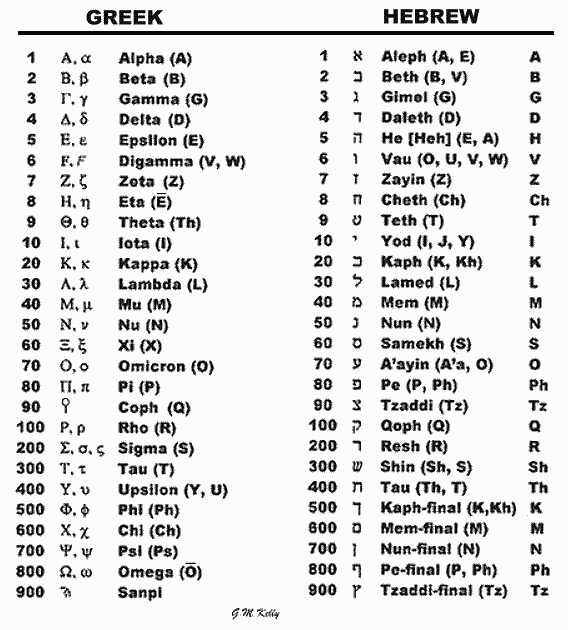| | | | 666, The Number of the Beast  Rev 13:16 And he causeth all, both small and great, rich and poor, free and bond, to receive a mark in their right hand, or in their foreheads:
Rev 13:17 And that no man might buy or sell, save he that had the mark, or the name of the beast, or the number of his name.
Rev 13:18 Here is wisdom. Let him that hath understanding count the number of the beast: for it is the number of a man; and his number is Six hundred threescore and six. Note that according to verse 17, there are three different characteristics that distinguish the beast: - his mark (of authority)
- his name
- the number of his name (666).
It might be argued by some that 666 must be applied to one man's name, and that this will then help identify him as the antichrist. I would offer the following verse to show that 666 need not apply solely to a man's name: Rev 19:16 And he hath on his vesture and on his thigh a name written, KING OF KINGS, AND LORD OF LORDS. 
The same Greek word translated as name (onoma: G3686) that appears in Revelation 13:17-18 is also used in chapter 19:16, so clearly the word can also apply to a title, and not just one man's name. Now, we are told that it takes a certain understanding and wisdom to discern just how this number is actually applied. Based on the fact that 666 can apply to a title, below are several words and phrases that have been put forth over the centuries as probable solutions to the enigma of 666. 

GREEK The numeric equivalents of Greek letters can also be found in the Encyclopedia Britannica under "Languages of the World", Table 8.The ancient Greek word for "the Latin speaking man" is LATEINOS | L = 30 | lambda | | A = 1 | alpha | | T = 300 | tau | | E = 5 | epsilon | | I = 10 | iota | | N = 50 | nu | | O = 70 | omicron | | S = 200 | sigma | | ------------ | | 666 | NOTE: Latin is the official language of the Roman Catholic Church. Church Documents are usually published first in Latin, and then translated from the Latin into other languages. The association of "Lateinos" with 666 was first suggested by Irenæus (ca. 130-202 A.D.) who proposed in his Against Heresies that it might be the name of the fourth kingdom in Daniel 7:7. Then also Lateinos has the number six hundred and sixty-six; and it is a very probable [solution], this being the name of the last kingdom [of the four seen by Daniel]. For the Latins are they who at present bear rule: I will not, however, make any boast over this [coincidence]. Source:  Against Heresies, by Irenæus, Book 5, chapter 30, paragraph 3. Against Heresies, by Irenæus, Book 5, chapter 30, paragraph 3.
 St. Irenaeus biography online at the New Advent Catholic web site. St. Irenaeus biography online at the New Advent Catholic web site.  For Next Page 
| | | |
 Free Forum Hosting
Free Forum Hosting